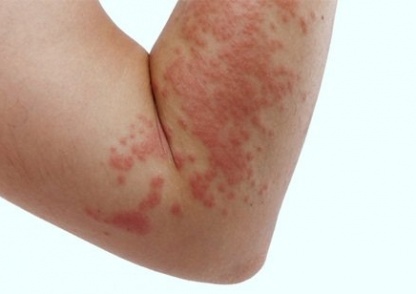Diarrhea: Causes, Symptoms, and Treatments
Diarrhea: Causes, Symptoms, and Treatments

Diarrhea is one of the most common reasons for people to seek medical advice; it can range from a mild, temporary condition, to one that can be life-threatening.
Globally, there are an estimated 2 billion cases of diarrheal disease each year, and 1.9 million children under the age of 5, mostly in developing countries, die from diarrhea.
Diarrhea should not be confused with the frequent passing of stools of normal consistency - this is not diarrhea. Diarrhea is characterized by abnormally loose or watery stools.
Similarly, breastfed babies often pass loose, pasty stools, which is normal and not diarrhea.
Symptoms of diarrhea

Symptoms of diarrhea can include bloating, thirst, and weight loss.
Diarrhea - loose and watery stools - is itself a symptom of other conditions. However, it may be accompanied by other symptoms, including:
- Stomach pain
- Abdominal cramps
- Bloating
- Thirst
- Weight loss
- Fever
Some symptoms are considered indicators of a more serious illness - blood or pus, fever, signs of dehydration, persistent vomiting, chronic diarrhea, or weight loss.
Causes of diarrhea
Most cases of diarrhea are caused by an infection in the gastrointestinal tract. The microbes responsible for this infection include:
- Bacteria
- Viruses
- Parasitic organisms
The most commonly identified causes of acute diarrhea in the United States are the bacteria Salmonella, Campylobacter, Shigella, and Shiga-toxin-producing Escherichia coli.
Some cases of chronic diarrhea are called "functional" because a clear cause cannot be found. In the developed world, irritable bowel syndrome (IBS) is the most common cause of functional diarrhea.
IBS is a complex of symptoms. There is cramping abdominal pain and altered bowel habits - diarrhea, constipation, or both.
Inflammatory bowel disease (IBD) is another cause of chronic diarrhea. It is a term used to describe either ulcerative colitis or Crohn's disease. There is often blood in the stool in both conditions.
Other major causes of chronic diarrhea include:
- Microscopic colitis- usually affects older adults. The persistent diarrhea is often during the night.
- Malabsorptive and maldigestive diarrhea- the first is caused by impaired nutrient absorption, the second by impaired digestive function. Celiac disease is one example.
- Chronic infections- a history of travel or antibiotic use can be clues to chronic diarrhea; various bacteria and parasites can be the cause.
- Drug-induced diarrhea- the obvious cause is laxatives, but a list of other drugs can also lead to diarrhea including antibiotics.
- Endocrine causes- sometimes hormones are the cause, for example, in conditions including Addison disease and carcinoid tumors.
- Cancer causes- neoplastic diarrhea is associated with a number of gut cancers.
Treatments for diarrhea

Correcting dehydration is the priority of diarrhea treatment.
Mild cases of acute diarrhea may resolve without treatment. Persistent or chronic diarrhea will be diagnosed and treated in addition to the symptoms of diarrhea.
For all cases of diarrhea, the first important step in treatment is to rehydrate:
- Fluids can be replaced by simply drinking more fluids, or they can be received intravenously in severe cases. Children and older people are more vulnerable to dehydration.
- Oral rehydration solution/salts (ORS) - this is water that contains salt and glucose. It is absorbed by the small intestine to replace the water and electrolytes lost in the stool. In developing countries, ORS costs just a few cents; the World Health Organization (WHO) says ORS can safely and effectively treat over90 percent of non-severe diarrhea cases).
- Oral rehydration products are available commercially - for example Oralyte and Rehydralyte. Zinc supplementation may reduce the severity and duration of diarrhea in children.
OTC antidiarrheal medicines are also available:
- Loperamide (Imodium, for example) is an antimotility drug that reduces stool passage.
- Bismuth subsalicylate (for example, Pepto-Bismol) reduces diarrheal stool output in adults and children and may be a safer alternative to loperamide. This drug can also be used to prevent traveler's diarrhea.
There is some concern that antidiarrheal medications could prolong bacterial infection by reducing the removal of pathogens via stools.
Antibiotics are only used to treat diarrhea caused by a bacterial infection. If the cause is a certain medication, switching to another drug might be possible.
Nutrition
Nutritionists from Stanford Health Care offer some nutritional tips for diarrhea:
- Sip on clear, still liquids such as fruit juice without added sugar, replacing lost water after each loose stool with at least one cup of liquid
- Do most of the drinking between, not during meals
- Consume high-potassium foods and liquids - examples include diluted fruit juices, potatoes (without the skin),bananas
- Use high-sodium foods and liquids - broths, soups, sports drinks, salted crackers
Other advice from the nutritionists is to:
- Eat foods high in soluble fiber to help thicken the stool - bananas, rice, oatmeal, for example
- Limit certain foods that may make diarrhea worse such as creamy, fried, and sugary foods
Certain food and drink might make the diarrhea worse:
- Sugar-free gum, mints, sweet cherries, prunes
- Caffeinated drinks and medication
- Fructose in high amounts, from fruit juices, grapes, honey, dates, nuts, figs, soft drinks, and prunes
- Lactose in dairy products
- Magnesium
- Olestra (Olean) - a fat substitute
Probiotics
There is mixed evidence for the role of probiotics in diarrhea. In children, there is evidence that they might reduce diarrheal illness by 1 day.
Probiotics may also help prevent traveler's diarrhea.
Antibiotic-associated diarrhea might be reduced by the use of probiotics, as may diarrhea related to Clostridium difficile, although the evidence is mixed. Advice from the doctor is recommended since there are numerous strains, but the most studied for antibiotic-associated diarrhea are probiotics based on Lactobacillus rhamnosus and Saccharomyces boulardii.
Probiotics to help with Clostridium difficile and antibiotic diarrheas were investigated in a trial published in The Lancet. They found "no evidence" that a multi-strain preparation of bacteria was effective in preventing these conditions, calling for a better understanding of the development of antibiotic-associated diarrhea.
Probiotics are available in capsules, tablets, powders, and liquids.
Tests and diagnosis of diarrhea

Parasites or their eggs can be seen under a microscope.
The doctor will start by asking questions about the problem, including current medications, past medical history, and other medical conditions.
They will also ask:
- When the problem started
- Stool frequency, type (for example, watery, mucus-filled, pussy) and volume
- Whether blood is present in the stool
- Whether there has been vomiting
Doctors will also be concerned about whether there is dehydration. Severe dehydration can be fatal if treatment with rehydration therapy is not given urgently.
Tests for diarrhea
Because most cases of diarrhea resolve themselves, and because the diagnosis can be made clinically, tests are not usually required. But in more severe cases, for example, doctors may order further testing.
Acute cases, particularly if the patient is very young or old, may require a stool sample to be tested. Other factors might also need to be investigated; for instance, if the patient:
- Has signs of fever or dehydration
- Has stools with blood or pus
- Has severe pain
- Has lowblood pressure
- Is immunocompromised
- Has recently traveled to places outside Western Europe, North America, Australia, and New Zealand
- Has recently received antibiotics or been in hospital
- Has diarrhea persisting for more than 1 week
Chronic cases of diarrhea will be tested according to the suspected underlying cause, and may include the following investigations:
- Full blood count - foranemia or a raised platelet count which suggests inflammation
- Liver function tests, including albumin level
- Tests for malabsorption -calcium, vitamin B12, folate, iron status (ferritin), thyroid function tests
- ESR (erythrocyte sedimentation rate) and CRP (C-reactive protein) - with raised levels possibly pointing to inflammatory bowel disease (IBD)
- Celiac diseasetesting - for antibodies
Prevention of diarrhea
In developing countries, prevention of diarrhea may be more challenging due to dirty water and poor sanitation. The following practical measures help to prevent the condition:
- Clean/safe drinking water
- Good sanitation (toilets and sewerage, for example)
- Handwashing with soap - after defecation, after cleaning a child who has defecated, after disposing of a child's stool, before preparing food, and before eating
- For mothers with young babies, breastfeeding for the first 6 months of life
- Good hygiene practices - both personal hygiene and in the kitchen
- Education on the spread of infection
There is evidence that interventions from public health bodies to simply promote hand washing can cut diarrhea rates by about one-third.
(Source from: http://www.medicalnewstoday.com/articles/158634.php)










